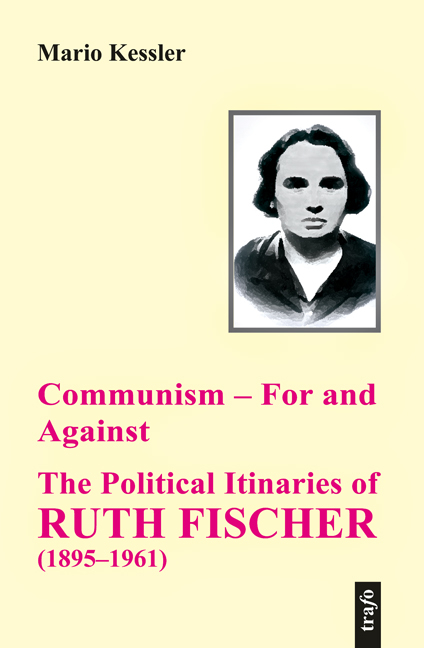Ruth Fischer once ranked among Germany and Europe's most prominent women. Right after the end of WWI, she co-founded the Communist Party of Austria, became famous as the chair of the Communist Party of Germany in the Weimar Republic and, after 1945, was associated with the anti-communist crusade in the United States where she authored the best-selling book Stalin and German Communism. At the end of her life she vainly hoped that the Soviet Union under Nikita Khrushchev would move towards a more democratic variant of communism. Ruth Fischer was the sister of two other prominent Austrian-German communists: the composer Hanns Eisler (1898–1962), a disciple and friend of Arnold Schönberg, and the journalist Gerhart Eisler (1897–1968) whom she would denounce as Moscow's most dangerous communist agent in the United States. To explain why Ruth Fischer's political itinerary went to such extremes – astonishing even in the 'Age of Extremes', to mention Eric Hobsbawm – is the purpose of the following remarks.
Communism - For and Against
The Political Itinaries of Ruth Fischer (1895 - 1961)

Bildinfo
Jahr
2013
Ort
Berlin
Verlag
trafo
Seiten
94
ISBN
978-3-86464-035-3
Hier kann die Publikation bestellt werden
